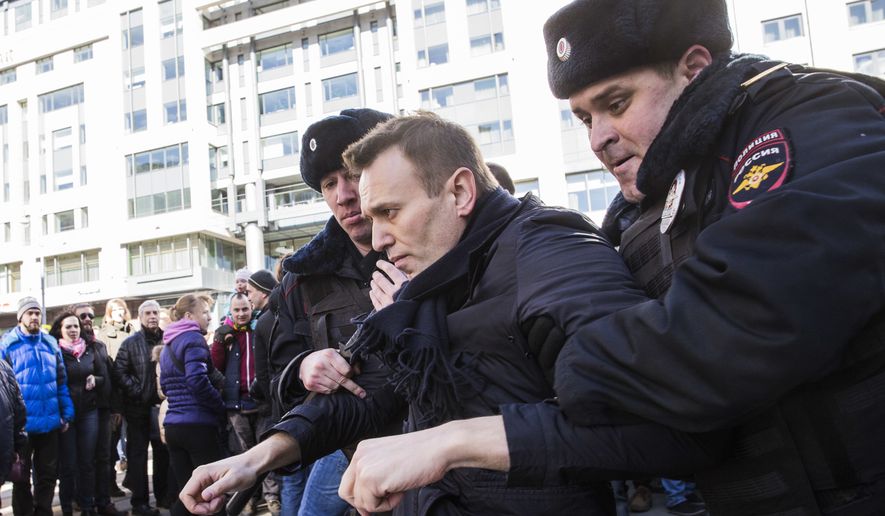MOSCOW (AP) — Russian opposition leader Alexei Navalny appeared in court on Monday, a day after being detained at a major opposition rally that he led the previous day.
Tens of thousands of protesters took to the streets across Russia on Sunday in the biggest show of defiance since the 2011-2012 anti-government protests.
The Kremlin has dismissed the opposition as Westernized urban elite disconnected from the issues faced by the poor in Russia’s far-flung regions, but Sunday’s protests included demonstrations in the areas which typically produce a high vote for President Vladimir Putin, from Siberia’s Chita to Dagestan’s Makhachkala.
Russian police say that about 500 people were arrested, while human rights groups say 1,000 were taken into custody. On Monday, the European Union has called on Russian authorities to release the demonstrators.
The protests were led by Navalny, a charismatic opposition leader who has recently announced his bid for presidency. Navalny was grabbed by police while walking to the rally from a nearby subway station. He posted a selfie on Twitter from the courtroom on Monday morning, saying: “A time will come when we’ll put them on trial too — and that time it will be fair.” If found guilty, he could be jailed for 15 days for staging an unauthorized rally.
The 40-year old Navalny, arguably Russia’s most popular opposition leader, has been twice convicted on fraud and embezzlement charges that he has dismissed as politically motivated. Navalny is currently serving a suspended sentence, and Sunday’s arrest could be used as a pretext to convert it into jail time.
Separately, police arrested 17 associates of Navalny’s who were at their office, setting up and monitoring a webcast of the rally. All of them spent the night at the police station while authorities raided their office, reportedly taking out all equipment. It wasn’t immediately clear what charges they may be facing.
Whether Navalny and his associates will be slapped with new charges could indicate which approach the Kremlin will take in dealing with a new wave of discontent: crack down on it even further or exercise restraint.
Russian state television completely ignored the protests in their broadcasts on Sunday, and authorities didn’t comment on it in any way.
___
Geir Moulson contributed to this report from Berlin.




Please read our comment policy before commenting.